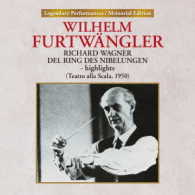- ホーム
- > 洋書
- > 英文書
- > Cinema / Film
Full Description
The book presents an interpretation of neo-noir filmmaking through the lens of economics, based on readings of central neo-noir works from the noir revival of the early 1970s to recent films. Analyzing key themes and figures of neo-noir - desire and betrayal, corruption and alienation, the private detective and the femme fatale - the project reads neo-noir filmmaking as a privileged site for the expression of anxieties around work, money, trust, and exchange. Neo-noir filmmaking embodies a profound reflection on the hollowing-out of economic and social life, the collapse of trust, the erosion of institutions, and fears regarding legacy and identity, developments that have undermined the promise of American life in the long twilight of the American dream since the end of postwar prosperity.
Aimed at the many scholars and faculty who study and teach film noir and neo-noir at levels from high school to post-graduate. It will appeal as well to the extensive community of cinephiles enthusiastic about noir, those who attend "Noirvember" screenings at repertory movie houses, who read the websites of the Film Noir Foundation or Eddie Muller (the self-styled "Czar of Noir"), and participate in discussions of noir and neo-noir filmmaking on online forums.
Contents
List of Figures
Acknowledgments
Introduction: Nightcrawler Nation
1. Incest and Capital in Neo-Noir
2. Incest and Modernity: Mean Streets and After
3. The Private Eye as Professional: Charisma and Ambivalence
4. Femme Fatales and Other Marginalized Workers
5. Feminism, the Femme Fatale, and the Problem of Trust
6. Lesbian Noir as Solution to the Problem of Trust
7. Noir Legacies: Race
8. Noir Legacies: Influence
Conclusion: Waking Nightmares
References
Index







